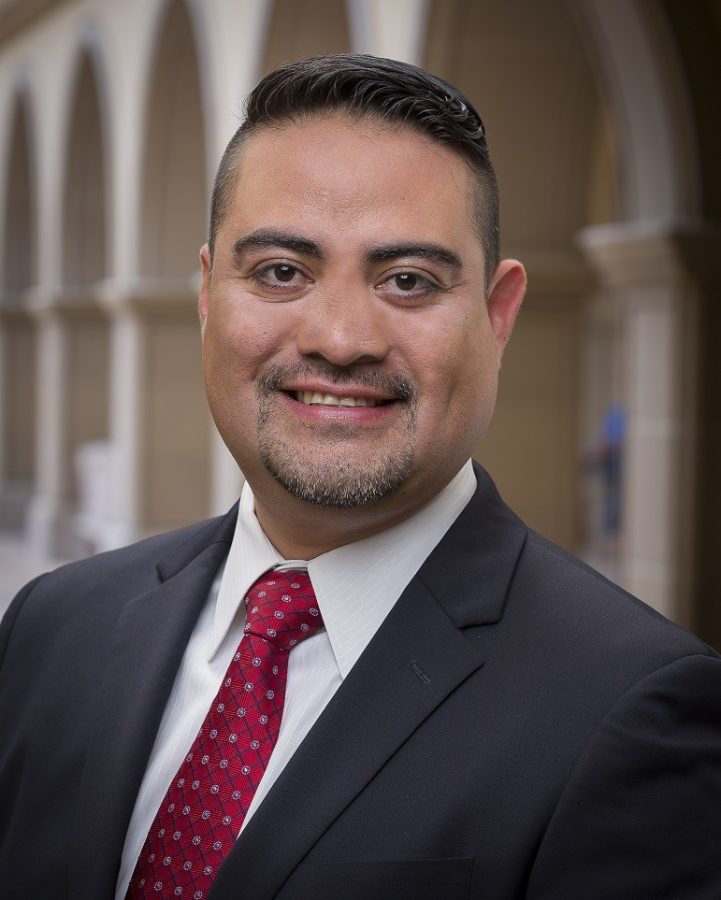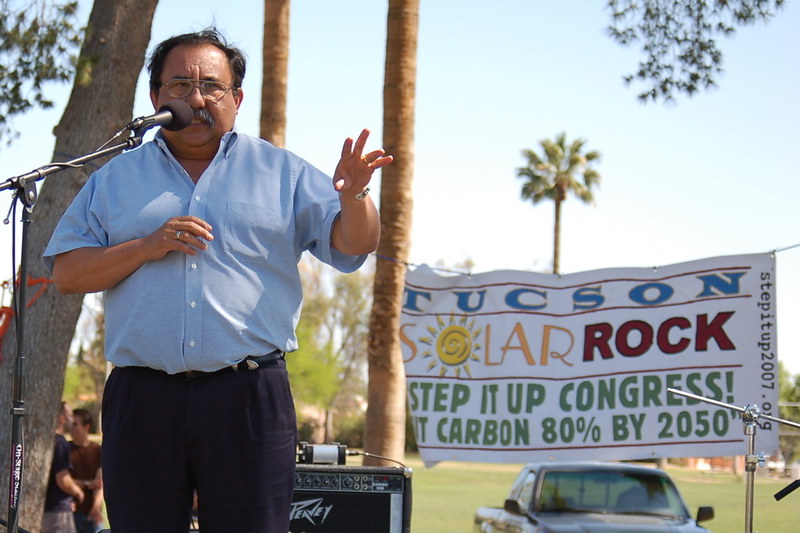After spending a lifetime in and around Casino Del Sol, working his way up to potentially the top of the executive food chain, Francisco Olea, a third year student at the University of Arizona James E. Rogers College of Law, is among the five members of the Pascua Yaqui tribe in the running to become the next CEO of Casino Del Sol as a part of the Executive Succession program.
“It’s been a very personal experience for me, watching the casino grow,” Olea said. “I think that’s what differentiates me to a certain extent from the other candidates, but I mean they’re all great candidates.”
The program began about seven months ago. Over the next two years, Olea and his fellow candidates will work under current CEO and UA College of Law alumna Kimberly Van Amburg, as well as other executives at the casino.
RELATED: Q&A: Danielle Geller
Their training includes rotations within the different departments of the casino and an exchange program with other casinos.
“My goals for the next three years include implementing a well-thought-out Tribal Succession Program, as well as continuing to improve upon tribal development at all levels,” Van Amburg said in a statement to the casino.
Olea has over 16 years of experience working with gaming on tribal lands and in the casino. His history with the casino began before he was even old enough to work.
“I like to think of myself as a casino baby because I was raised by my single mother and … she was always at work,” Olea said. “When I was in high school I had all these extracurricular activities … so I was never home. But when I was home my mom was at work so I would just go hang out with her.”
Olea started his employment with the casino right after high school. His first job was a slot floor attendant. From there he worked his way up to supervisory and management level jobs before becoming a gaming regulator for the tribe’s government.
After 16 years working in the gaming community, Olea returned to the UA to obtain his law degree, a goal he plans on completing regardless of the outcome of the executive succession program.
During his time as a law student, Olea worked at the National Indian Gaming Commission in Washington, D.C. for a summer. During this time, Olea realized how he could combine his experience in gaming with his education in law.
“Largely my goal with law school … was to see how I can apply what I learn here in terms of my gaming expertise …” Olea said. “As far as legal and policy making, I want to explore areas that have more to do with self-sufficiency.”
Olea balances his time between law school, career advancement and family life. Olea married his high school sweetheart when they were young, and the couple now has three children.
During his first year at law school, Olea’s wife was diagnosed with cancer.
“When it comes to my life in general and how I prioritize things, I place a lot more importance on my family and my children and family life over even my work or my educational goals,” Olea said.
Olea’s work ethic has not gone unnoticed among his colleagues in the College of Law, specifically the Indigenous People’s Law and Policy Program.
“We’re really proud of Frank,” said Justin Boro, assistant director of IPLP. “I think it just kind of speaks to the quality of people that come here and how committed they are to their community … I think that spirit of giving back is really awesome and I think frank exemplifies that in a lot of ways.”
The IPLP focuses on the issues regarding the U.S.’s framework for interacting with sovereign native nations like the Pascua Yaqui tribe. Its specific vision fit well with Olea’s desire to bring his knowledge of law to his experience with gaming on tribal lands.
RELATED: UA commemorates Native American Heritage Month
“I like the idea of helping tribes,” Olea said. “My goal is always to go back to my tribe and my community, but if I end up in another community or another tribe that needs help as well, then I’m very much happy with that…”
Olea will not know for another two years whether or not he will fill the position of CEO. For now, his life consists of balancing his time between three interconnected worlds and continuing to work for his future.
“I started off just in the very bottom of this,” Olea said. “The trajectory was never to be the CEO, you know it wasn’t something that I envisioned when I decided to go back to school, but I knew that the more education that I got, the more ability to make change I would have.”
Follow Vanessa Ontiveros on Twitter








